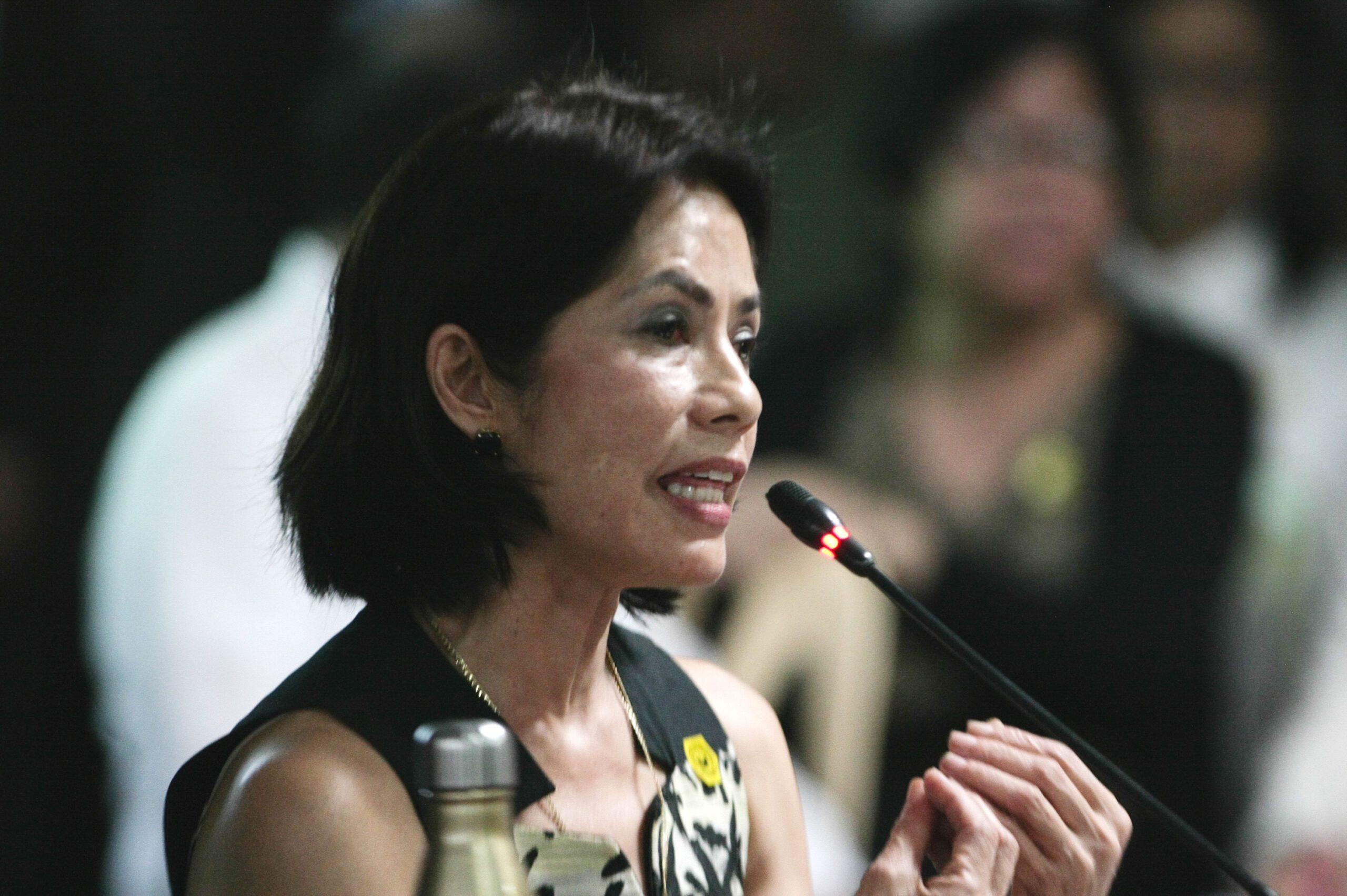SUMMARY
This is AI generated summarization, which may have errors. For context, always refer to the full article.

MANILA, Philippines – Environment Secretary Gina Lopez insisted on Thursday, March 9, that ISO 14001 Certification – which she herself called the measure of responsible mining – is just one standard for mines, and that social justice is another standard that mining companies must comply with.
Lopez made the statement at her confirmation hearing before the Commission on Appointments (CA) committee on environment and natural resources. (WATCH: LIVE: Gina Lopez faces Commission on Appointments)
The discussion on the ISO certification started after Cristine Li of the University of the Philippines Mining Engineering Society played an audio clip of Lopez saying that “ISO 14001 is just another way of saying responsible mining.”
Li asked the secretary if this certification was considered when the Department of Environment and Natural Resources (DENR) conducted its mining audit.
“Technical is not enough. Social and economic is of equal, if not more important, value,” Lopez insisted. She even cited the case of Marcopper as the “biggest mining disaster in the country and yet it followed ISO 14001.”
Li then went on to correct Lopez, saying she doubts that there was already an ISO 14001 during the Marcopper incident because the first version of the certification began in 2004.
“Lafayette and Philex had ISO 14001 certification, but had spills,” Lopez clarified.
It was during former environment secretary Ramon Paje’s term when the DENR mandated ISO certification for mining contracts.
On her first day as environment secretary, Lopez also referred to the mining companies’ supposed adherence to ISO 14001 Certification as a measure of responsible mining.
But at her confirmation hearing on Thursday, Lopez said her standard is social justice. Occidental Mindoro Representative Josephine Ramirez Sato clarified this statement with the secretary.
“Ang pinapaulit-ulit ko dito, batas po dapat ang sinusunod natin. Sa batas po natin, ano bang standard (What I keep repeating here is that the law should be the one followed. In our law, what’s the standard)?”
Sato added, “Not ‘my standard’ but what’s the standard set by the law?”
Lopez then referred to Paje’s administrative order on ISO 14001. She clarified that she has no intention to revoke this requirement, but she also reiterated that the evaluation of mines should not be limited to the “technical” side.
“I’d like to reiterate that all decisions the DENR made were backed up by no less than 7 laws,” she added.
After listening to Sato’s line of questioning, Senator Panfilo Lacson said: “Now I see the problem. May sinunod na standard ang mining companies (The mining companies were following a standard), and then all of a sudden, the secretary changed [the standard].”
“Alam nilang ISO compliant [sila], eh hindi naman kinonsider ‘yung criteria na social justice, economy. Eh ang sinunod nila ISO 14001 (They knew that they are ISO compliant, so they didn’t consider the criteria of social justice, economy. They followed ISO 14001),” he added, referring to Lopez’s “standard.”
The environment secretary reiterated that her decisions were not subjective and that they were made based on existing laws.
Lacson said “social justice” is the secretary’s policy statement, but the discussion is about standards set for mines. Davao Oriental Representative Joel Almario joined in, saying, “I don’t subscribe to the idea that the pronouncement of having social justice perspective is something new to operations.”
Lopez answered: “Social justice is in the heart and soul of the Constitution. Social justice is not a new thing.”
Senator Manny Pacquiao, CA committee chair, then asked Lopez to define social justice.
“Social justice is when people of the country enjoy the resources of the country. When people benefit, and not just a few. When utilization of resources does not disadvantage the greater majority,” she answered. – Rappler.com
Add a comment
How does this make you feel?
There are no comments yet. Add your comment to start the conversation.